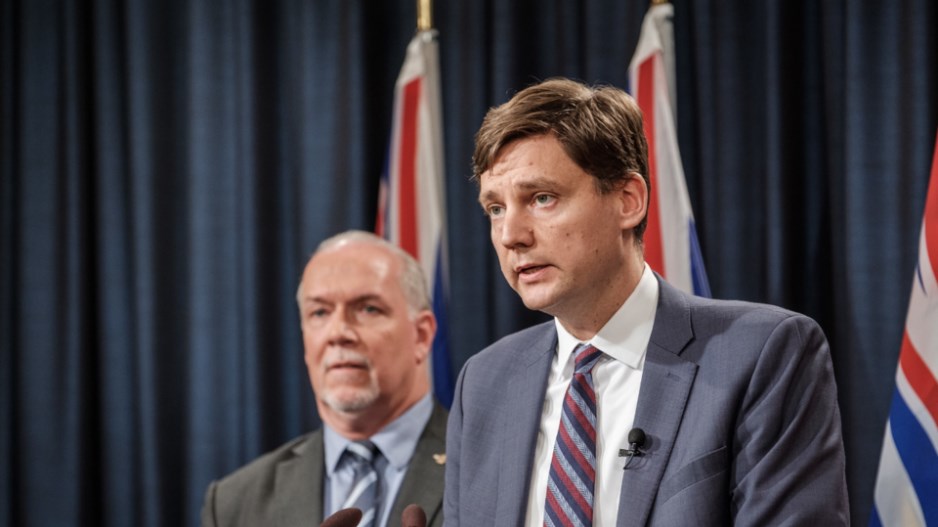While John Horgan packs up and leaves the premier’s office for incoming David Eby, the NDP government is running four ad campaigns worth more than $13.5 million.
Horgan came to power in 2017 after slamming the BC Liberal government for overspending on politically motivated ads.
The biggest is the latest wave of the Ministry of Health’s $8.8 million 2022 campaign to promote COVID-19 shots, which began Sept. 5 and is scheduled to run through Dec. 11.
Creative contractors are Trapeze Communications of Victoria and Captus Advertising of Vancouver. The media buyer is iProspect Canada, an arm of Japan-based global giant Dentsu.
The Government Communications and Public Engagement department refused to provide the current expenditure, claiming it sets budgets by fiscal year, not by month or season.
The latest edition of the CleanBC campaign is budgeted at $1.67 million and began Sept. 19, running through Nov. 13. NOW Communications Group and iProspect are the contractors.
NOW and iProspect are also contractors on the Oct. 17-Nov. 27 version of the $2.37 million anti-stigma Stop Overdose campaign.
The fourth campaign is the $724,000, fall harvest wave of the Ministry of Agriculture’s BuyBC, by Trapeze and iProspect. It launched Oct. 3 and runs through Oct. 30.
“Sharing information with people about how to benefit from programs and services is part of good government and our commitment to working for people,” said a prepared statement from the Ministry of Finance, which oversees GCPE.
iProspect Canada billed $15.7 million for the fiscal year ended March 31. It billed another $3.9 million in April, according to the government’s public accounts.
In a November 2015 interview, while in opposition, Horgan said the BC Liberals were “padding the pockets of their political pals.”
“They spend countless dollars, time and energy withholding information that the public asks for, but when the public’s not looking for information they’ve got mountains of money to spend, to bury us in self-congratulatory promotion,” Horgan said at the time.
Two of the creative contractors for the current campaigns have strong ties to Horgan and Eby’s party.
NOW was originally formed by members of Mike Harcourt’s campaign team after the 1991 election. It billed the party $1.78 million for work on Horgan’s 2020 re-election campaign. Multicultural specialist Captus received $498,787 for its work on the 2020 NDP campaign.
Public accounts show that Trapeze received $934,910 in the 2021-2022 fiscal year, and invoiced for another $433,196 in April. NOW was second last year at $783,199. It got another $236,423 in April.
The NDP promised in its 2017 platform that it would end partisan government advertising. While it still spends on campaigns that correspond with its strategic objectives, it has not enacted any new laws to restrict government advertising in any way. It does, however, seek advice from Advertising Standards Canada to meet a non-partisan checklist, such as preventing the use of party colours and slogans or the name, voice or image of a government politician.
Meanwhile, Eby is replacing Horgan’s chief of staff Geoff Meggs with Matt Smith, former president of the NDP’s polling and data-mining contractor Strategic Communications.
Shannon Salter, the deputy attorney general since February, will become Eby’s deputy minister and head of the public service, replacing Lori Wanamaker.
Smith’s appointment signals the high likelihood of more, not less, government advertising under Eby en route to the next scheduled election in 2024.
Smith was president of Vancouver-headquartered Stratcom for almost five years. Prior to joining Stratcom, he was director of voter engagement on Vision Vancouver’s 2011 election campaign.
At Stratcom, Smith’s specialties included telephone town halls, micro-targeting, peer-to-peer texting and MobileReach, Stratcom’s list of likely cell phone numbers.




